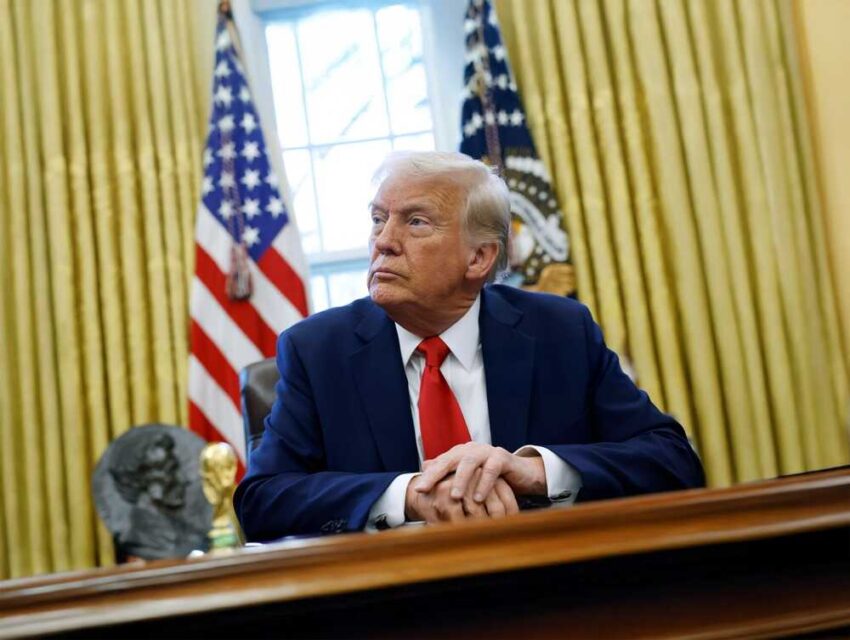(LibertySociety.com) – In a city where the right to self-defense has long been a political battleground, President Trump just rewrote the rules, and the consequences are already reverberating far beyond Washington’s borders.
Story Snapshot
- President Trump federalizes D.C. law enforcement and deploys National Guard troops to combat crime
- Gun permit process slashed from months to days, empowering law-abiding residents
- Federal intervention sets a precedent not seen in decades, raising questions about local autonomy
- Immediate impacts include increased armed citizenry and heightened law enforcement presence
Trump’s Federal Crime Crackdown: An Unprecedented Move
President Donald Trump initiated a sweeping federal intervention in Washington, D.C. on August 11, 2025, responding to what he called an “epidemic of crime.” By mobilizing the D.C. National Guard and taking direct control of the city’s police department, Trump executed a maneuver with no recent parallel: federalizing a local police force in one of America’s most scrutinized cities. This action was quickly followed by the deployment of National Guard troops and hundreds of federal law enforcement agents, all tasked with restoring order and supporting local police operations.
The deployment, announced on August 12, brought National Guard troops into 24-hour rotations, supplementing the Metropolitan Police with both uniformed patrols and tactical support. Federal agents from the FBI, ATF, DEA, and U.S. Marshals joined the effort, patrolling neighborhoods and federal landmarks. The scale and permanence of this operation differ sharply from past National Guard deployments, which were typically short-lived and event-driven, such as inauguration protests or emergency situations.
Empowering Citizens: Gun Permits in Days, Not Months
Central to Trump’s crackdown is the radical overhaul of D.C.’s gun permit process. Until August, law-abiding citizens faced waits of several months for concealed carry permits and firearm registration. Under the new White House directive, backed by the “Making DC Safe and Beautiful” task force, that wait now averages just 4.6 days. Next-day and walk-in appointments have replaced the old backlog, and the city’s gun shops are reporting a surge in legal purchases. Supporters claim this measure arms responsible citizens against rising crime and sends a strong message to would-be offenders.
Federal officials, including Army Col. Larry Doane, stress that the permitting process remains thorough, with background checks and mandatory training, but critics warn that expedited approval risks compromising vetting standards. D.C. residents are divided: some embrace the newfound ability to protect themselves, while others fear an escalation in violence and a fraying of community trust.
Federal Control vs. Local Autonomy: Who Holds the Power?
The intervention exposes deep fault lines between federal authority and local governance. While D.C. has always been subject to congressional oversight, the direct federal takeover of its law enforcement apparatus is a dramatic assertion of power. Local officials express concern about the erosion of home rule and warn of lasting damage to democratic accountability. The White House maintains that federal action is justified by the urgent need for public safety and the unique status of the District as a federal enclave, but constitutional scholars debate the legality and prudence of such sweeping intervention.
Coordination between federal and local agencies is mandated, yet strained. Federal officials direct operations, while city leaders must adapt to a new reality: diminished authority and heightened scrutiny from both residents and national observers. This dynamic amplifies existing tensions over policing, civil liberties, and the right to self-defense in the nation’s capital.
Impact and Controversy: What Comes Next?
Short-term effects of the crackdown are already visible. Crime rates are under the microscope, with supporters pointing to increased patrols and a more empowered citizenry as deterrents. Businesses and federal employees express relief at heightened security, while some community groups fear increased militarization and the proliferation of firearms. Political analysts predict that Trump’s intervention will become a national flashpoint, influencing debates over gun policy, federalism, and the future of urban policing.
Long-term, the legal challenges and political fallout remain uncertain. Experts warn that precedent-setting federal actions in D.C. could embolden similar interventions elsewhere, or provoke backlash that reshapes the landscape of American law enforcement. The balance between public safety, personal liberty, and local autonomy is once again at the center of the nation’s most important political arguments.
Copyright 2025, LibertySociety.com .
Click this link for the original source of this article.
Author: Editor
This content is courtesy of, and owned and copyrighted by, https://libertysociety.com and its author. This content is made available by use of the public RSS feed offered by the host site and is used for educational purposes only. If you are the author or represent the host site and would like this content removed now and in the future, please contact USSANews.com using the email address in the Contact page found in the website menu.








